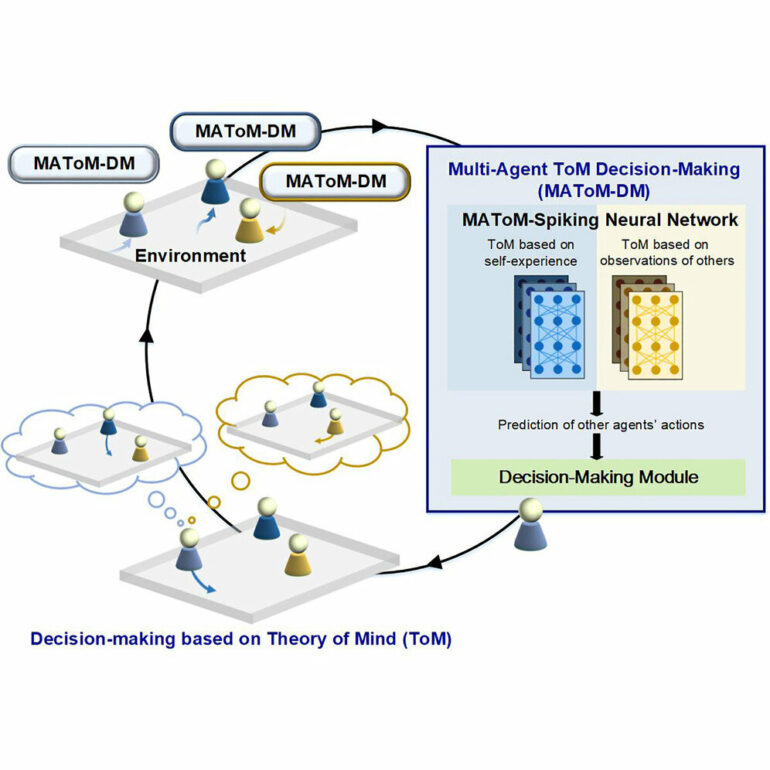Theory of mind (ToM) refers to the ability to infer mental states of others, such as beliefs, intentions, and desires. It’s a kind of high-level social cognitive ability.
Neural mechanisms underlying ToM have been uncovered gradually in recent years. These mechanisms provide insights for studying and exploring social interactions among multi-agent systems and human-computer interactions based on ToM.
Recently, a research team led by Prof. Zeng Yi from the Institute of Automation of the Chinese Academy of Sciences has proposed a spiking neural network (MAToM-SNN) based on multi-agent theory of mind to improve multi-agent cooperation and competition. The study was published in Patterns on June 23.
When AI obtains the functionality of Theory of Mind/Cognitive Empathy, it has to be inspired by the brain so that we know the Theory of Mind model in AI is comparable to the human version and it is more trustworthy for human and society.
The proposed network consists of two modules: Self-MAToM module for inferring others based on self-experience and Other-MAToM module for inferring others based on historical observations of others.
“Predicted behaviors of others by MAToM-SNN provide rich state representations for the decision-making model, enabling the decision network to adjust its policies adaptively,” said Prof. Zeng Yi, corresponding author of the study.
Agents with MAToM-SNN can use their own experiences or observations of others to infer their behaviors and adjust their policies to interact better with others. Besides, MAToM-SNN enhances the performance of multi-agent systems in cooperative and competitive tasks.
“MAToM-SNN demonstrates high levels of generalization on multi-agent reinforcement learning tasks based on spiking neural networks and recurrent neural networks,” said Zhao Zhuoya, first author of the study.
Moreover, the researchers found that Self-MAToM helps Other-MAToM learn quickly. “The self is a prerequisite for inferring others. Thus, it is essential to infer about others based on self-experience when information about them is incomplete,” said Assoc. Prof. Zhao Feifei, co-author of the study.
More information:
Zhuoya Zhao et al, A brain-inspired theory of mind spiking neural network improves multi-agent cooperation and competition, Patterns (2023). DOI: 10.1016/j.patter.2023.100775
Provided by
Chinese Academy of Sciences
Citation:
Spiking neural network based on theory of mind helps multi-agent cooperation and competition (2023, July 14)



